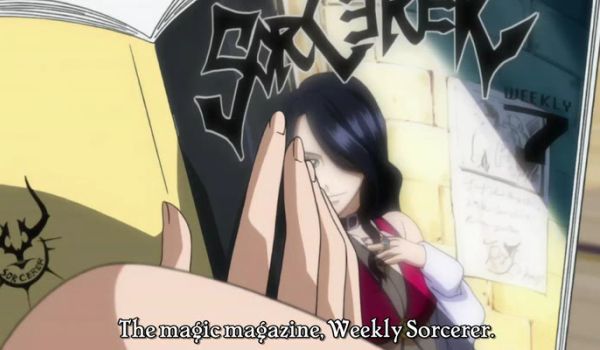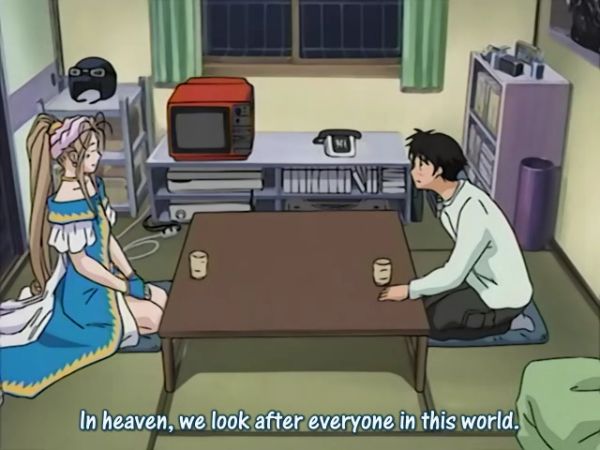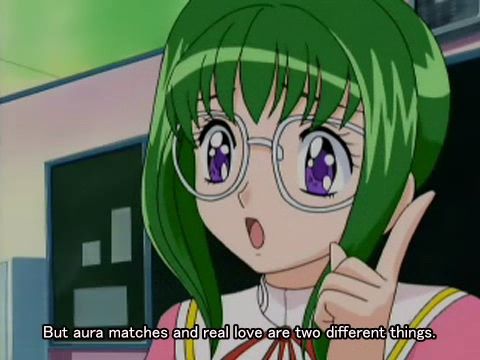
Imagining a world in which sorcery plays a similar role as technology here. Again.
Inspired a little by Psychic Academy, I started writing another fiction story. The connection is pretty far from plagiarism, as usual. When I say one of my stories is inspired by another story, it usually happens like this: I condense the other story down to a short paragraph or even just a couple sentences. Then I expand those again. So basically if you were to tell the two stories in a short paragraph each, they would sound the same, but if you were to read them, they would be completely different.
The short version: A teenage boy comes to a high school for gifted youngsters who can wield extraordinary powers. He does not know exactly what he can do, and people tend to mis-estimate him, but he turns out to have talent. More importantly, there are girls! Very different girls. What kind of relationship will he have with each of them?
Actually, I am more interested in the magic, but there is no way anyone would read it without girls. I should probably throw in a pretty boy too just in case.
To the matter at hand: Worldbuilding! This story is actually in the same timeline as one I started on last year (or was it the year before?), but takes place a few generations later, when society has started to depend on sorcery, rather than it being a disruptive technology (and generally outlawed) as in the first story.
Sorcery (in this and all of my stories) is the art of drawing magic from other worlds, generally from worlds in which it is more plentiful and into worlds where it is scarce. Magic is by default a chaotic force, breaking the rules of nature. As such, it needs to be bound by powerful spells. Rather than the willpower and talent of the individual, as in traditional magic stories, the magic here is bound by arcane sigils, elaborately drawn patterns that in this case just happen to look vaguely like Japanese or Chinese characters.
Both this method of binding magic, and the five colors of magic, were used in the NaNoWriMo Novel That Deleted Itself And Its Backups, two years ago this fall. However, that novel was set in a modern version of the world in the game Master of Magic, so the magic was native to that planet, and there were magical crystals, magical metals, and various non-human races common to fantasy worlds: Elves, dwarves, lizardmen and catgirls. In today’s story, however, there are only humans (although they had a brief visit from an elf-like race that taught them sorcery). And the magic is drawn from worlds where there is (supposedly) too much of it, one world for each of the colors of magic.
The colors of magic are the same as in Master of Magic and the more famous Magic: The Gathering. I may have tweaked them slightly. There are five colors, or rather five and a half:
Red is the color of fire and direct destruction. However, it can also be inverted to create cold. It is the easiest color to bring into being, but hard to control in large quantities. Red wielders tend to be extremely energetic.
Green is the color of nature, life and fertility. It also has healing powers. Green wielders tend to be extremely erotic. They also have longer lifespans.
Blue is the color of water, air and the mist of illusion. Control of air and water is important for transportation, and Blue adepts can also control the weather. Blue wielders tend to be unpredictable and unfathomable with a quirky humor.
White is the color of light, protection and knowledge. It reveals secrets, sees through illusions and protects the innocent. White wielders tend to be lawful and pious, or at least somewhat sanctimonious.
Black is the color of death and draining other magics. It is strictly forbidden, but supposedly it is possible for a sufficiently advanced sorcerer to figure out how to create black magic. If there are Black wielders, they are by definition evil.
Gray is the magic of summoning, teleportation and item enchanting. It is considered a stunted magic, with many limitations, and only taken as a secondary color. In this world, it is also referred to as Yellow.
After the Coming of the Strangers came the Age of Witches, in which sorcery was an underground and illegal activity in Scandza (formerly Scandinavia), though it may have been legal somewhere else. As of this story, however, society has come to depend on sorcery. In an age where modern technology is mere legends and natural resources depleted, even a barely adequate magic wielder comes in useful, and the most talented sorcerers can turn the tide of a nation’s fate. The adepts, or A-level sorcerers, are the mega-stars of their age, like movie stars, top athletes or presidents in our world. At the bottom of the scale, E-level sorcerers are dowsing for water, tending gardens or working in kitchens. By far the majority of sorcerers are E or at best D level, while A sorcerers are so few as to be known by name.
In West Scandza Youth Academy of Sorcery, the first year is spent learning the basics and choosing one’s primary color. The first year exams decide what class one will start in next year. Once you are in a class, it is rare to move up or down more than at most one class, and usually not even that. So the pressure is extreme, as the fate and fortune of whole families or towns may hang in the balance between a bunch of geeky high school juniors with trace amounts of blood in their hormone stream.










